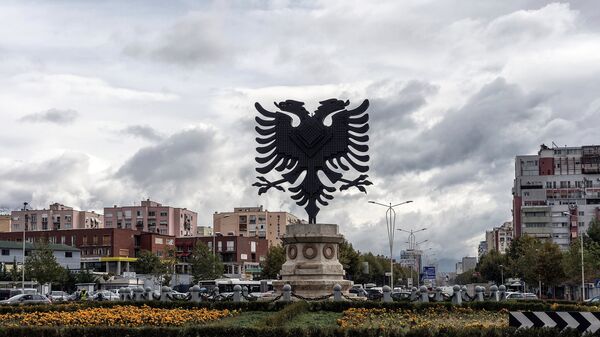Documents released by Britain’s National Archives have painted a picture of the disorder and anarchy on the streets of Albania after a pyramid investment scheme collapsed.
After the fall of communism in 1991 Albanians sought to improve their lives in a free-market economy but there were few private banks and many families chose to borrow money from private companies like Kamberi, VEFA and Gjallica.
— Ani Kokobobo (@ani_kokobobo) March 15, 2020
But in early 1996 three new companies, Xhafferi, Populli and Sude, began offering interest rates of 12-19 percent a month.
Within a few months two million Albanians - out of a population of 3.5 million - had invested in one of the three companies but in November 1996 Sude collapsed, triggering a panic.
In January 1997 the government froze US$250 million in the bank accounts of Xhafferi and Populli but by March the country was in chaos.
— Puns N' Roses (@gthanku) May 24, 2020
On 2 March 1997 the Albanian ambassador in London, Pauli Qeska, wrote to British prime minister John Major about what he described as an “uprising.”
Mr Qeska wrote: "The extreme left is using and abusing the frustration of the ordinary people in an effort to regain by means of force what they failed to gain at the ballot box."
The ambassador went on to protest at the BBC World Service and Reuters who he claimed “have played a negative role in fuelling hatred and animosities and false reports about the role of the Albanian Army in the student hunger strike” in the town of Vlora.
Mr Qeska also railed at a group of 11 Labour MPs who had brought an early day motion in Parliament “with the only aim of bringing discredit to the Albanian state, government and the (ruling) Democratic Party.”
Thank you Leigh! I first worked briefly on Albania in 1997 when the pyramid schemes collapsed. It’s great to see Albania flourishing now and be able to play a part for the future. Now for mastering the tricky language!
— Alastair King-Smith (@AlastairKS) September 10, 2020
The ambassador urged Major to make a statement about the situation in Albania at “this critical moment” but, a nod to the upcoming general election in May 1997, Mr Qeska said he appreciated “this is a very busy time for your government and the Conservative Party.”
Albania became divided between the north and south.
The Albanian government lost control of southern Albania for a time, thousands of soldiers and police officers quit and around a million weapons were looted from state armouries.
By 25 April 1997 the situation had improved and a Foreign Office official, W. G. Ehrman, wrote to 10 Downing Street to inform them “the situation on the ground has become progressively calmer.”
Ehrman goes on: "Outside the capital, Tirana, however the authorities have little control. Violent incidents, mainly fighting between criminal gangs, are common in most towns, especially after dark."
He goes on to say “the best estimate” was that 200 Albanians had died during the disorder, although it is now thought 10 times as many were killed.
Ehrman wrote: “Political developments are discouraging” and said the key was Sali Berisha, who had been President since 1992 and led the anti-communist Democratic Party.
The British diplomat said: "Berisha has sacked the highly competent governor of the Albanian central bank and blocked the restructuring of the police and security services."
— Puns N' Roses (@gthanku) May 24, 2020
The report goes on to say that Leka Zogu, the “pretender to the Albanian throne”, had returned to campaign for the restoration of the monarchy and had been “well received”, as he was campaigning for a Greater Albania, uniting Albanians with their kinfolk in Kosovo and Macedonia.
Ehrman’s report concluded: “The outlook for Albania remains poor…Even if the political process remains on track and order returns, Albania’s economy, the poorest in Europe before the crisis, will take a long time to recover.”
The crisis ended in June 1997 when the Socialist Party won parliamentary elections, leading to the resignation of President Berisha and an eventual return of peace and order.
In 2005 Berisha returned to power as prime minister and two years later George H. W. Bush became the first US President to visit Albania.
Berisha, who was finally defeated in election in 2013, was a long-term supporter of Kosovan independence.




